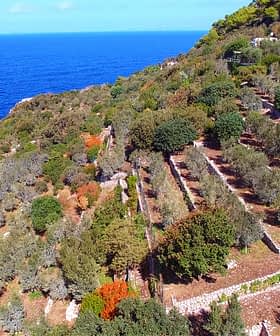Olive Pests and Disease Will Be Focus of International Conference in October
The International Organization for Biological and Integrated Control’s (IOBC-WPRS) ninth annual conference on the integrated protection of olive crops will take place in Lisbon from October 26 to 29.
“The main aim of this conference is to promote the exchange of information and strengthen the collaboration between people from academia, industry and farming with common interests in biological and integrated control of pests, diseases and weeds in the olive crop,” said Paula Baptista, the event’s organizer and a researcher at the Bragança Polytechnic Institute.
This conference will contribute to the discussion on the latest findings on olive tree protection, strengthening the transfer of scientific knowledge to end-users.
Baptista told Olive Oil Times that about 100 participants from across the Mediterranean region will attend the event, which will include scientific presentations, in-depth discussions and a one-day visit to olive groves and mills.
There will also be a short workshop featuring key topics related to the integrated protection of olive crops, exhibits from leading suppliers and prizes for students and early-career scientists.
See Also:Understanding Relationship Between Fungus and Climate May Curb Costly Olive Pathogen“The conference program was designed to cover the most recent results of research on topics ranging from basic knowledge to applied research,” she said. “This conference will contribute to the discussion on the latest findings on olive tree protection, strengthening the transfer of scientific knowledge to end-users.”
Among the topics covered at the event will be the impacts of climate change and new technologies for pest and disease control on olive production.
The event will also focus on implementing and executing integrated pest management and disease control strategies, including soil management, organic methodologies and targeted and widespread containment techniques.
There will also be presentations on biological and biotechnical control of olive pests and diseases. Among the topics covered in this section will be natural predators to disease vectors, molecular tools and biopesticides.
Baptista hopes the conference will enhance cooperation among all the members of the olive sector with a specific emphasis on protecting crops while minimizing their environmental impact, promoting sustainability throughout the production chain and ultimately yielding a higher-quality end product.
The two previous editions of the biennial event were held in Italy and Greece. Baptista said that Portugal was a natural choice for the organizers due to its rapidly transforming olive production landscape.
She added that this year’s event is likely to differ from previous ones due to its increased focus on the impact of climate change on olive pests and diseases.
While the event will not take place until the autumn, submissions to the event are open until July 15. More details on the conference program as it develops may be found here.









